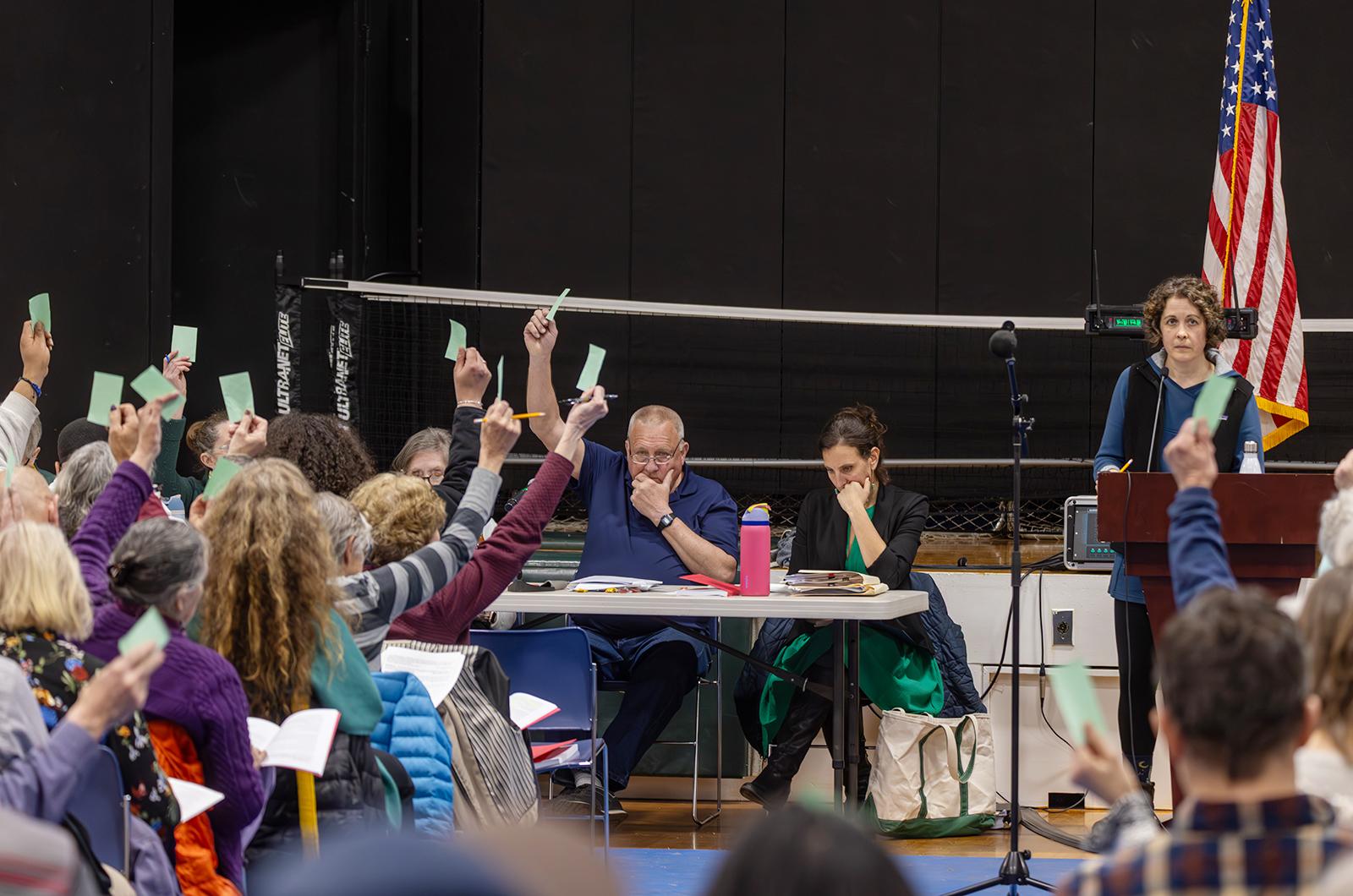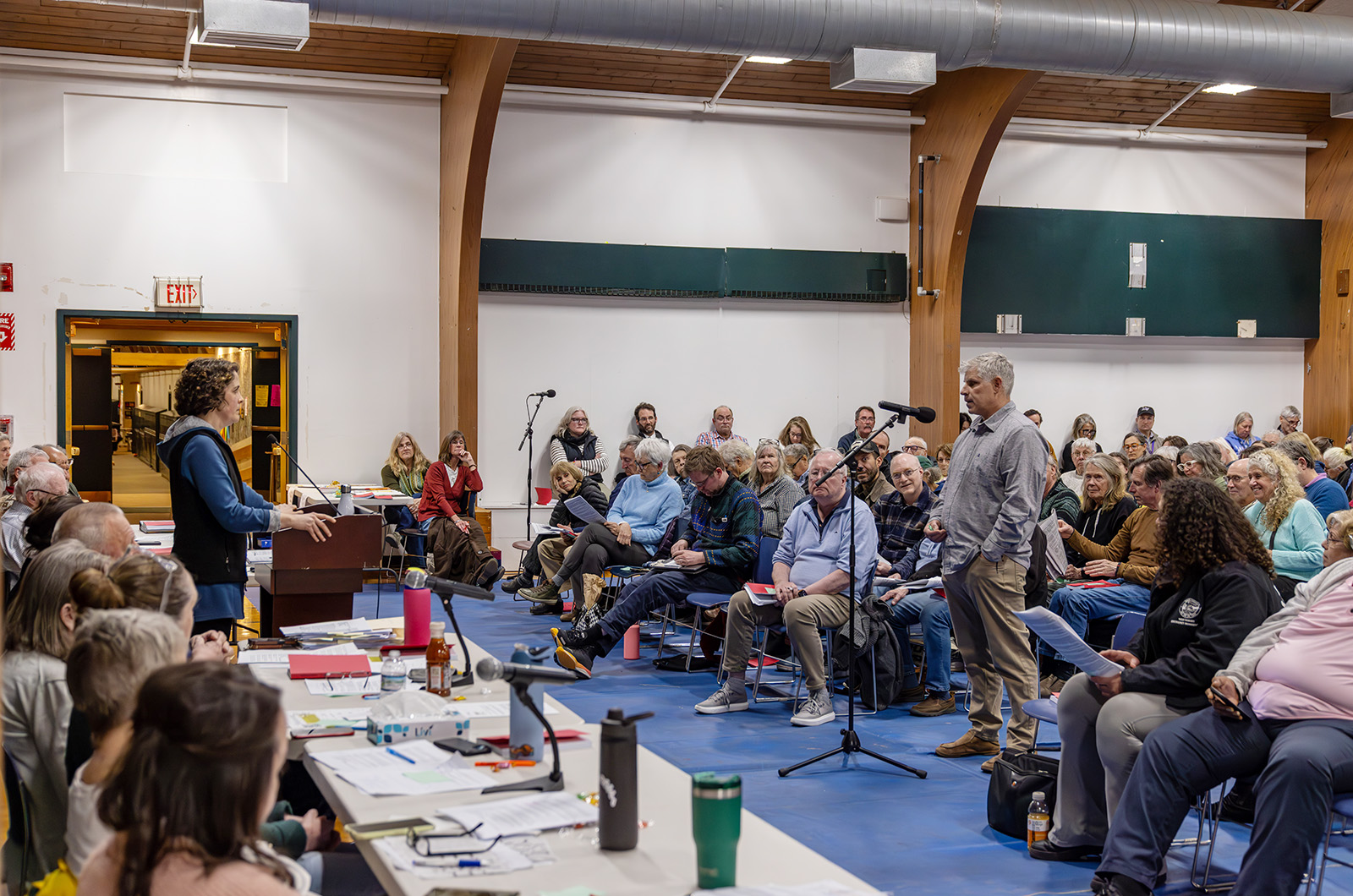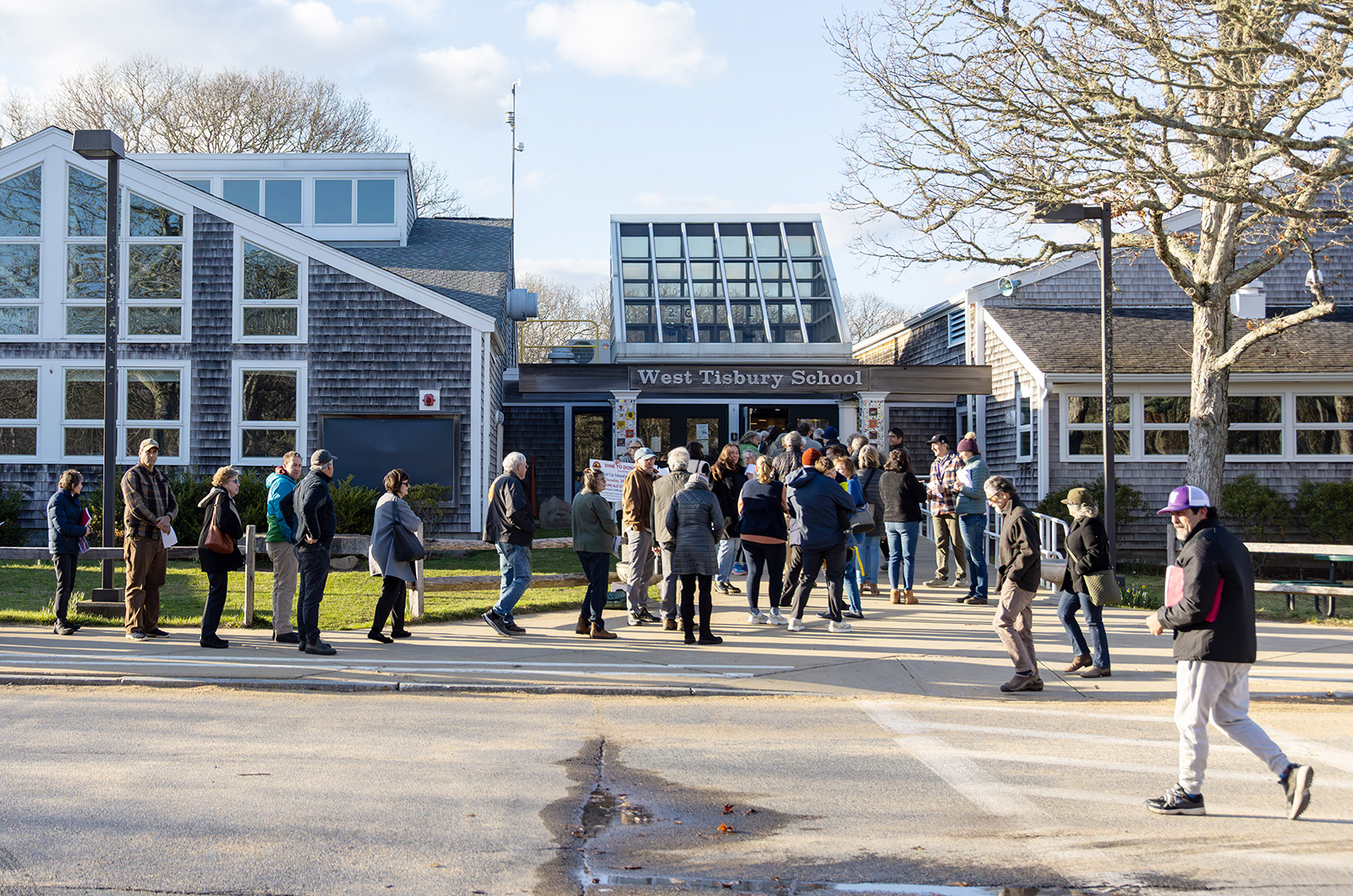West Tisbury voters gave the initial green light for a $1.6 million override and a $200,000 debt exclusion at the annual town meeting Tuesday.
The override was needed to deal with various spending increases within the town, including new positions such as a facilities manager and fire protection officer. The debt exclusion was requested by the Up-Island Regional School District to pay for HVAC repairs at the West Tisbury school and the removal of the bell tower at the Chilmark school.
The 283 voters that gathered at the special and annual town meeting at the West Tisbury School declined to pay for a feasibility study for the West Tisbury school and create a new town committee that would focus on the future of the Mill Pond.
The more than four-hour town meeting kicked off with residents passing the town’s $27.8 million budget. Taxes for property owners will be going up if the town approves the override and debt exclusion at the annual town election Thursday.
According to town assessor MacGregor Anderson, the override would cost the owner of a median home about $500 in fiscal year 2025. He didn’t anticipate much of a change for fiscal year 2026. The median home value in fiscal year 2025 was a little over $1.4 million.
Town accountant Chelsea Joiner briefly broke down where a majority of the budget is going during town meeting.
“The largest portion of our budget continues to be education,” she said. “The two school district assessments is up 55 per cent of the total budget. The Up-Island Regional School District assessment has increased by nearly $874,000, an 8 per cent increase. Meanwhile, the Martha’s Vineyard Regional High School assessment has grown by almost $646,000, a significant 20.2 per cent increase.”
The town passed a bylaw aimed to limit noise caused by leaf blowers. Various amendments were raised on the floor but failed to pass. The bylaw phases out gas-powered blowers by 2028, and puts other restrictions on when people can use blowers in town.
By a result of 89-55, voters struck down the creation of a new Mill Pond committee. The pond is suffering from high temperatures and low levels of oxygen, leaving town officials to consider its future.
The article was put forth by citizen’s petition, with the historic district commission spearheading the effort.
Voter Felicity Russell spoke for the creation of the committee.
“I feel that some of the studies and measurements that have been done are affected by what’s been allowed to happen to the pond,” she said. “It has more vegetation in it [now], the vegetation interferes with the oxygen. I think we need to consider the health of the fish coming up.”
Speaking against the new committee, voter Kate Warner cited the already existing Mill Brook watershed management committee.
“They’re an incredible committee,” she said. “They’re volunteers and they go out there and test the water all along the watershed and I don’t see why we need another committee. I think we need to listen carefully [to] what they’re suggesting.”
The $700,000 feasibility study for the West Tisbury School was also ultimately voted down. Concerns revolved around what exactly the study would entail and the amount of money.
“I’m sure we need a feasibility study,” voter Amelia Smith said. “I’m sure the school needs renovations, but $700,000 doesn’t make sense.”
There were initial suggestions on the floor to postpone the article indefinitely, which was also voted down.
“I say put it off for the year, come back next year and get a solid plan,” voter Sue Hruby said. “Have our pocketbooks in mind when doing this.”
Voter and parent John Stanwood was against tabling the article.
“I have a one-year-old son who’s getting ready to go through the school system here, and I would vote against tabling this,” he said.
The planning board presented a series of bylaws addressing how accessory dwelling units (ADUs) can be built in relation to a principal unit.
Another new bylaw that was voted on was an event bylaw. The bylaw gives requirements and details on how many events can be held a year, the permitting process with the town and what generally constitutes an event.
Town administrator Jennifer Rand addressed her personal experience as someone who has dealt with event permits for more than 20 years.
“In the past few years, we’ve gotten more complaints and there’s more pressure, and we had an instance where we felt something needed an event permit, and it was denied, and it went to the Zoning Board of Appeals, and the ZBA had a concern that there was no way to understand what an event was and how it all worked,” she said.
Discussion revolved around why the bylaw was needed, and an amendment was made to exclude funerals from the bylaw.
The evening included the introduction of new town officials. Poet laureate Tain Leonard-Peck welcomed incoming poet laureate Adriana Stimola, and new moderator Caroline Flanders was given a round of applause prior to her first night at the podium.
The town voted against changing the quorum change to 100 voters. The town quorum is 5 per cent of registered voters, which is currently 137.
Many said lowering the quorum would be discouraging local democracy.
“This is a participatory democracy like none I’ve ever seen before,” voter Doug Ruskin said. “I think in these times especially, we need to do everything we can to get our voices heard.”









Comments (3)
Comments
Comment policy »